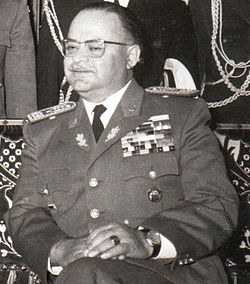Since 1800, the youngest serving state leader has been 0-days-old Alfonso XIII, King of Spain, [1] while the oldest has been 96-year-old Elizabeth II, Queen of the United Kingdom and the other Commonwealth realms.
This article contains various lists of state leaders organized by age, defined as heads of state and/or heads of government.






